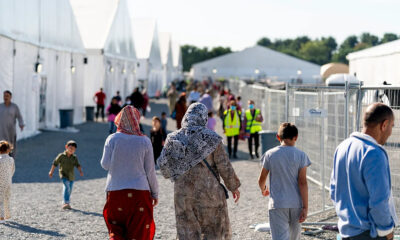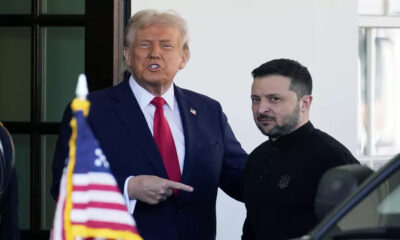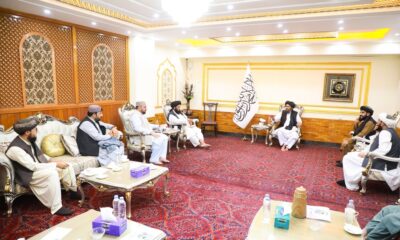Latest News
Taliban shows willing-signs to get along with India
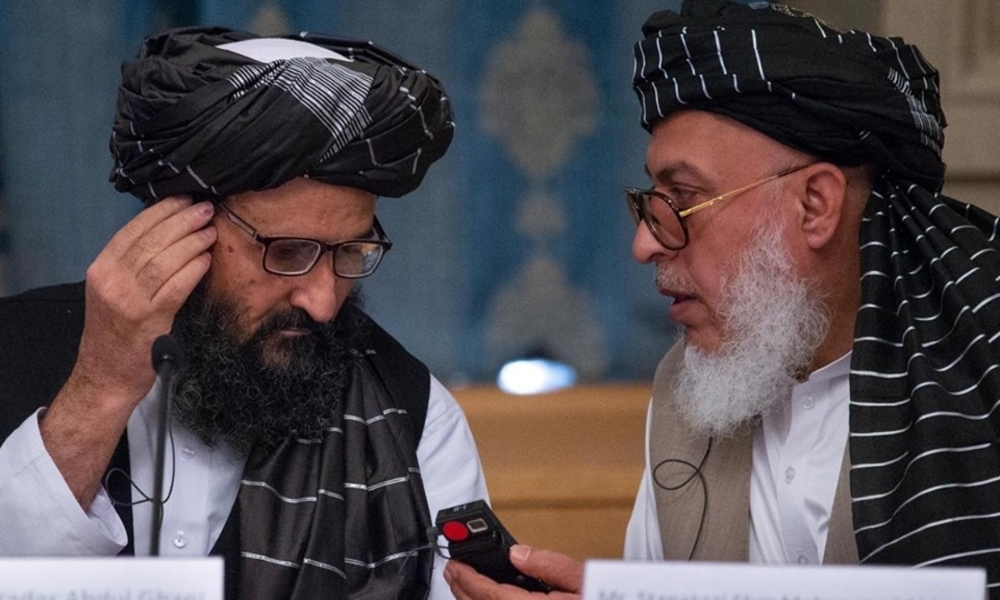
Shir Mohammad Abbas Stanikzai, a prominent member of the political office the Taliban in Qatar, told Ariana News that as soon as Delhi contributed positively to the Afghan peace process, the Taliban were ready to get along.
Since the start of the talks between the United States and the Taliban in 2019, many countries, including Russia, China, Pakistan, Iran, and some Central Asian countries, have approached the Taliban representatives, except for India.
The United States has recently poked India to participate in the process. The Taliban have also welcomed it, saying it is conditional of a positive move by the India side.
Responding to the question ‘if the Taliban were willing to talk to India as part of the US efforts’, the group’s prominent member Stanikzai said, “We have no problem with anyone who wants to take a positive step towards peace in Afghanistan. Whenever they want to take a positive step in this regard, we are ready to talk with them for peace.”
Zalmay Khalilzad, the US special representative for reconciliation in Afghanistan, has said India was an important element in Afghanistan’s peace process and would welcome its involvement in it
In the meantime, ThePrint, an Indian digital news platform, has written that it was not expected that the Narendra Modi administration would change its position and be directly part of Afghanistan’s peace talks with the Taliban unless it derives from pressure by the United States.
It has quoted senior Indian officials as saying that New Delhi was willing to speak out if the Taliban recognized the democratic government – the Afghan government – and that the United States was now forcing India to take part in the Afghan peace talks.
An Afghan free journalist, Sami Yousufzai, who is mostly following the peace process and its events, believes that India is deeply concerned about the Taliban’s return to the Afghan political system.
“It is a fact that during the Taliban regime, thousands of Kashmiri jihadist fighters were active in Afghanistan.” He has said noting that when the United States sought a guarantee from the Taliban that there would be no more room for al-Qaeda or other groups that pose a threat to the United States and the West, India also wanted to receive a commitment from the Taliban as such.
On the other hand, according to Yousufzai, Zalmay Khalilzad has tried to share India’s concerns with the Taliban, which seems to be fruitful as a relationship seems to have taken birth between the Taliban and India.
The progress in the Afghan peace talks has shown that Pakistan has influence over the Taliban and is a key player in the process.
India, on the other hand, had no place in the process but has now made it clear that at the other end of the process – the Afghan government – it has a strong position in relation to the Ghani-led government.
Ahmad Saeedi, a former diplomat at the Afghan embassy in Pakistan, said that following the US-Taliban agreement, [India] was deeply concerned thinking that all the provisions of the agreement were in Pakistan’s interest; therefore, Zalmay Khalilzad has been trying to seek India’s satisfaction to step into negotiations with the Taliban.
So far, India has not yet announced its will for direct talks with the Taliban; however, a point to be noted is that after meeting with Indian officials, Zalmay Khalilzad traveled to Pakistan and met with Qamar Bajwa, Pakistani army’s chief of staff, to seek Islamabad’s support in speeding up starting the Intra-Afghan talks, reducing violence, and overall, to help take the Afghan peace process to next level.
Khalilzad travels to Qatar to meet with Taliban political representatives, following up on his agenda: the acceleration of government-Taliban prisoner releases, the immediate start of Intra-Afghan talks, the reduction of violence, the humanitarian ceasefire, and last but not the least, India’s participation in the peace process.
Latest News
Trump administration to end protection program for Afghans
Over 8,000 Afghans were approved for TPS as of last year, according to federal statistics.
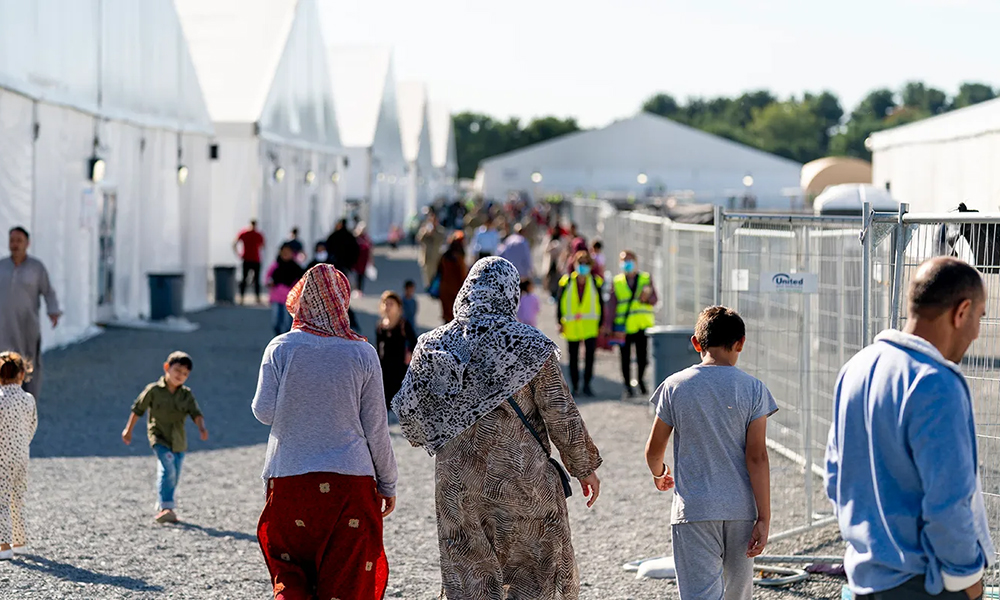
The Trump administration is ending the Temporary Protection Program that offered deportation protection to thousands of people from Afghanistan.
The Department of Homeland Security said Monday it will end the program on July 12.
The TPS program allows migrants to get work permits and temporary reprieve from deportation if the U.S. government determines it is unsafe for them to return to their home countries due to war, natural disaster or other issues.
Over 8,000 Afghans were approved for TPS as of last year, according to federal statistics.
TPS was last extended for Afghanistan in 2023, and it was set to expire in May unless the Trump administration chose to grant another extension.
“This decision is unconscionable and will have long-lasting ripple effects,” #AfghanEvac, a group that helps relocate Afghans, said in a post on X.
International Sports
IPL 2025: Tournament resumes Saturday
The remainder of the IPL matches will be played across six venues; venues for the four play-off ties and the final on 3 June will be announced later

The Board of Control for Cricket in India (BCCI) has decided to resume the Indian Premier League (IPL) following the recent ceasefire agreement between New Delhi and Pakistan.
The tournament was suspended last week due to clashes between the two neighboring countries. However, the BCCI said on Monday night it will resume matches from this Saturday, May 17 and the tournament will run through until June 3.
The BCCI said in a statement late Monday that “after extensive consultations with government and security agencies, and with all the key stakeholders, the board has decided to proceed with the remainder of the season.”
The remainder of the IPL matches will be played across six venues, and Royal Challengers Bengaluru will host defending champions Kolkata Knight Riders on Saturday followed by one of two double-headers Sunday.
Jaipur, Delhi, Lucknow, Mumbai and Ahmedabad are the other host cities for the remaining league phase matches.
The venues for the four play-off ties, including the final on 3 June, will be announced later.
The original hosts for the playoffs were Hyderabad and Kolkata, with the final at Eden Gardens on 25 May.
The first qualifier will now be on 29 May, followed by the eliminator on 30 May. The second qualifier is slated for 1 June and the final two days later.
The IPL was suspended for a week last Friday, a day after a match between Punjab Kings and Delhi Capitals was abandoned in Dharamsala, less than 200 kilometres from the northern city of Jammu, where explosions were reported hours earlier.
A special train was arranged for players to return to Delhi on Friday as airspace was closed, while overseas stars began to head home on Saturday.
Cricket Australia (CA) meanwhile said in a statement on Tuesday that their players were shaken by the events that led to suspension of the 18th edition of the tournament. /”
As a result, the board has left it to the players to decide whether they want to return or not, even for the players who will have little time to prepare for the World Test Championship (WTC) 2025 final against South Africa which starts just a week after the IPL 2025 final.
“Cricket Australia will support players in their individual decisions whether to return to India or not,” CA said in a statement.
“Team management will work through preparation implications for the World Test Championship final for those players who choose to play in the remaining IPL matches.
“We are maintaining communication with the Australian Government and BCCI around security arrangements and safety.”
WTC-bound players
Australia’s WTC 2025 final-bound players in the IPL 2025 are Delhi Capitals’ (DC) Mitchell Starc, Punjab Kings’ (PBKS) Josh Inglis, Royal Challengers Bengaluru’s (RCB) Josh Hazlewood and Sunrisers Hyderabad’s (SRH) Pat Cummins and Travis Head.
Hazlewood is unlikely to return to India as he picked up a shoulder injury. According to an Australian media outlet, Starc’s manager said that the left-arm pacer may also not return to India for the remainder of the tournament.
Australian SRH players will have plenty of time to return and prepare for the WTC final as their last league match is on May 25. The finalists of the previous edition are already out of the playoffs race.
Fans across Afghanistan can meanwhile tune in to Ariana Television from Saturday to watch all the remaining matches live. Fans can also follow Ariana News and Ariana Television’s social media pages for updates, news and revised schedules.
Latest News
Domestic investors eye $650 million investment in Hajigak iron mine
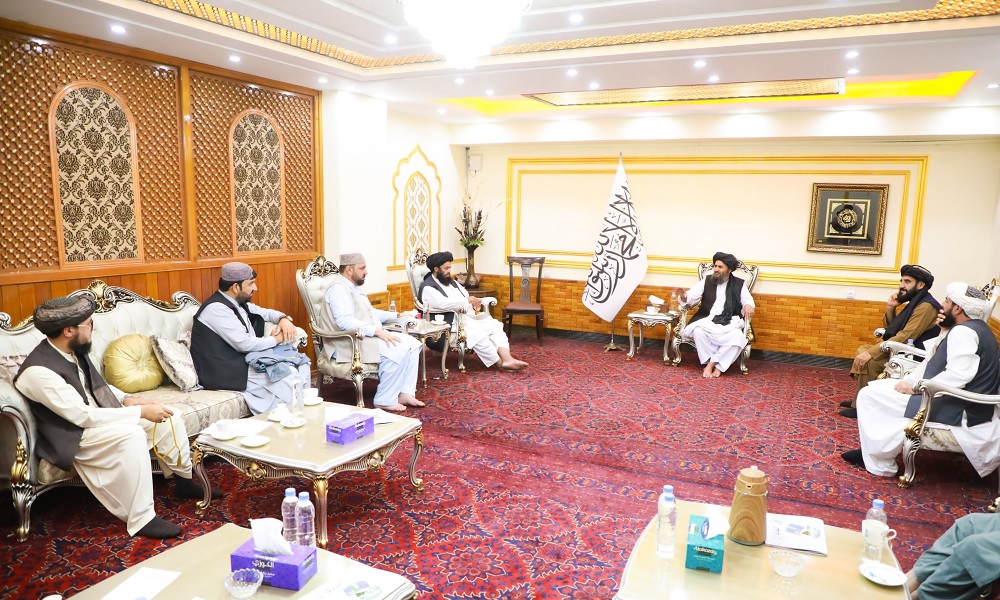
A number of domestic investors have announced plans to invest $650 million in three phases for the exploration and extraction of one of the blocks in the Hajigak iron mine.
The announcement was made during a meeting on Monday with Mullah Abdul Ghani Baradar, Deputy Prime Minister for Economic Affairs, who welcomed the initiative and reaffirmed the Islamic Emirate’s full support for such investments.
According to the investors, the project will be implemented in partnership with a foreign company and carried out using professional and modern mining standards. In addition to extraction, the plan includes the establishment of a sponge iron processing plant within Afghanistan, equipped with advanced technology and compliant with international standards.
The facility is expected to process up to 9,000 tons of sponge iron daily, converting it into steel billets to meet Afghanistan’s domestic demand for iron products. The project is also projected to create 6,000 direct jobs, contributing significantly to the local economy.
Mullah Baradar instructed the Ministry of Mines and Petroleum to collaborate closely with the investors and to regularly report on the project’s progress. He reiterated the government’s commitment to supporting initiatives that foster economic growth and self-reliance in the mining sector.
-

 Sport5 days ago
Sport5 days agoAriana Television to broadcast 4th edition of Afghanistan Futsal Premier League
-
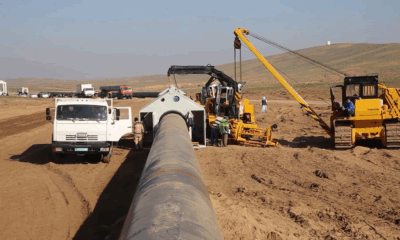
 Latest News5 days ago
Latest News5 days agoTAPI pipeline to reach Herat by end of 2025: Ministry
-
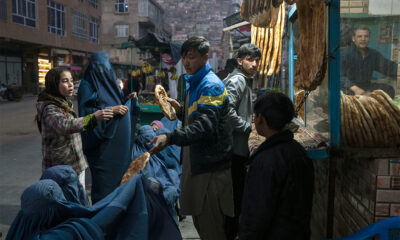
 Latest News5 days ago
Latest News5 days agoNearly one-third grapple with hunger in Afghanistan: WFP
-

 Sport5 days ago
Sport5 days agoIPL 2025: Dharamsala match abandoned due to security concerns
-

 Regional4 days ago
Regional4 days agoIndia says military stations attacked by Pakistan drones and missiles
-
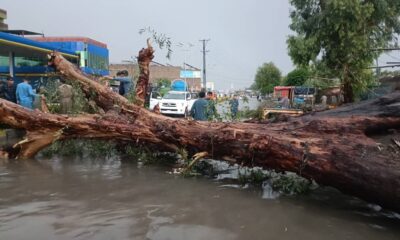
 Latest News4 days ago
Latest News4 days agoOne dead, dozens injured as powerful storm strikes Jalalabad, Afghanistan
-
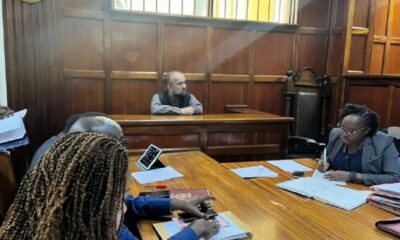
 Latest News4 days ago
Latest News4 days agoEx-Afghan deputy speaker Qadeer back in Kenyan court for criminal case
-
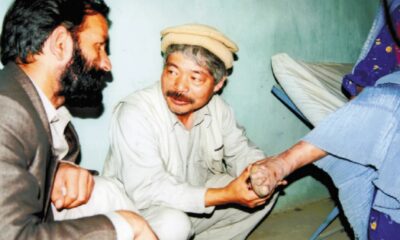
 Health4 days ago
Health4 days agoJapanese charity Peshawar-Kai to resume leprosy treatment in Afghanistan


